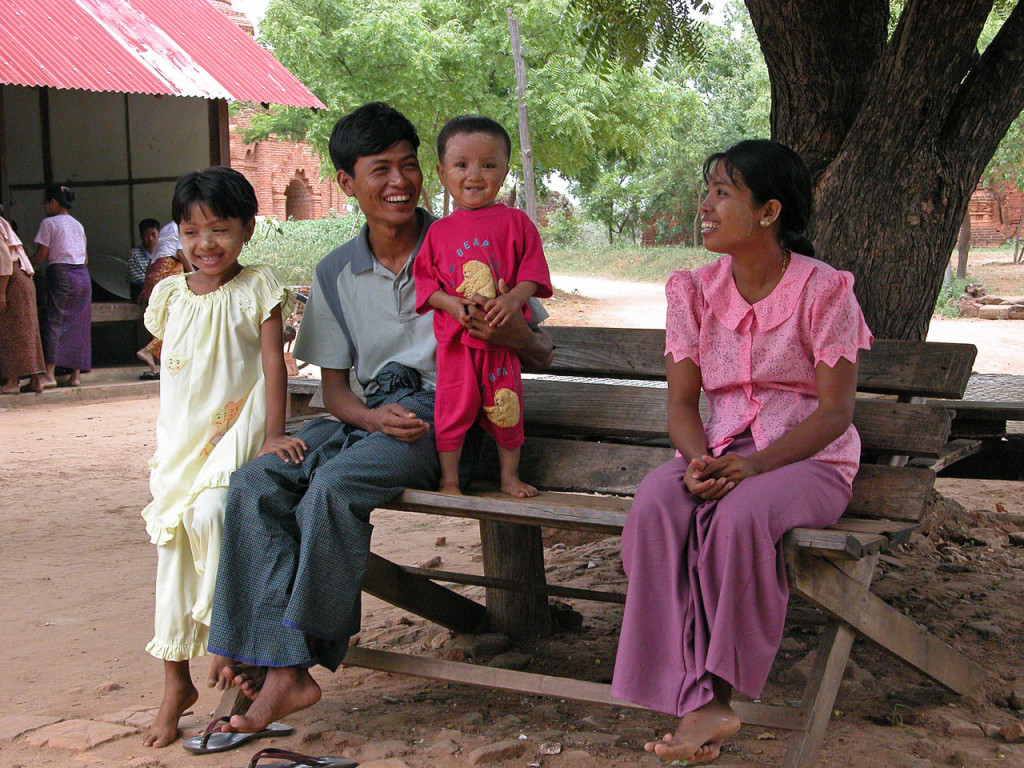Cetana Educational Foundation is dedicated to helping the people of Myanmar develop future leaders. We provide educational opportunities without regard to religion or ethnicity, and assist local institutions with educational resources and professional development.

Two Future Cetana Scholars with their parents.
Our Founders & History
Cetana (pronounced say-d’na) is a Buddhist Burmese word that means giving without expecting a return. Cetana focuses on educating young people, the hope of the future.
The foundation began in 1993 in response to a plea from Burmese educators who were disheartened by the military junta’s disruption of higher education. These educators contacted the children of Frederick and Bertha Dickason. Frederick, a college science professor, moved with Bertha, a nurse, to Burma in the 1930s. Except for the years of World War II, when the country was under Japanese control, they lived and worked in Burma until 1966. When higher education became a state monopoly after Burma’s independence from Britain in 1948, Frederick published books in many of Burma’s languages. Bertha conducted medical relief work and started a hospital.
The Dickason children – Jean, Lois and David – lived in Burma as children. After being contacted by the Burmese educators, they returned for a visit to Myanmar/Burma in 1990 and saw the country’s educational needs first-hand. Upon return to the U.S., they recruited a board of trustees, and in 1993, founded the Cetana Educational Foundation. Two decades later, Cetana has grown far beyond a family foundation, with a strong advisory board and partner organizations in the US, Myanmar and Southeast Asia.
Cetana’s initial mission was the Cetana Scholars Program that provided scholarships to promising students to pursue degrees in Thailand, Malaysia, the Philippines and the US. Each scholar signed a pledge to return to Myanmar and ninety percent of Cetana’s scholars have fulfilled their pledges.
Since selected scholars did not have the opportunity to develop fluency in English within Burma, Cetana set up English language courses to prepare the scholars for their study abroad. These courses provided the foundation for the learning centers that Cetana operated until 2021. The first learning center was established in Yangon in the early 2000’s. Its focus was to offer Burmese youth affordable classes in English. Since Burmese education is strongly oriented toward rote learning and memorization, this and the remaining Cetana centers stressed the development of critical thinking skills.
Cetana’s second learning center in Yangon, on the campus of the Myanmar Theological Institute, provided opportunities for students who prefer to attend courses outside the crowded downtown area. It also helped MIT students gain English fluency as they work toward their degrees.
In 2010, Cynthia Paul, who had been the recipient of a Cetana scholarship that allowed her to attain a Masters in English as a Second Language in Thailand, started Cetana’s first learning center outside Yangon, in Kyaing Tong, a rugged mountainous area in Myanmar’s northeast. This center has been a rousing success, with classrooms burgeoning with students of all ages – from tots as young as 6 years old, to professionals, such as dentists and businessmen. It is the model for Cetana’s drive to establish learning centers throughout Myanmar.
In the years that followed, Cetana was able to expand our roster of learning centers and to broaden our mission to include focused programs for young learners and dedicated teacher training programs. We opened learning centers in Dawei, the capital of the Tanintharyi Region on the Myanmar Peninsula, and in Pathein, the capital of the Ayeyrwady Region in the Ayeyrwady Delta. And, in cooperation with the monastery and Metta Partners, Cetana established a vibrant young learners program at the Sanda Rama Monastic School on the outskirts of Yangon. The final piece of the Cetana puzzle was the establishment of teacher training programs at Kanpetlet in the Chin Hills and at the Sanda Rama Monastic School.

